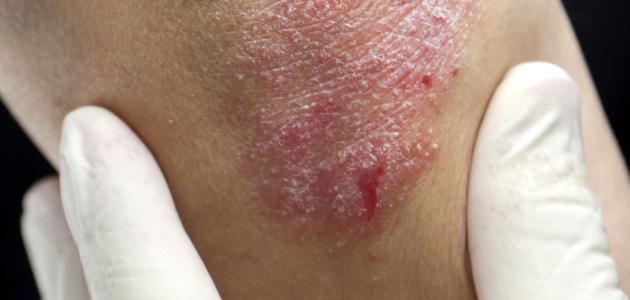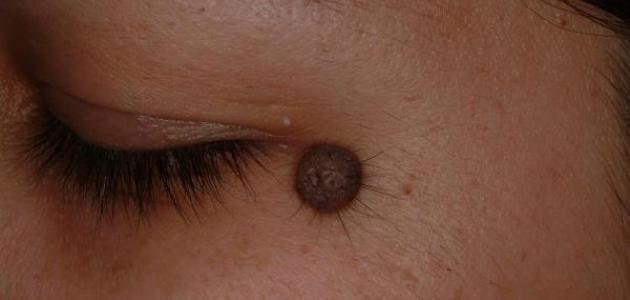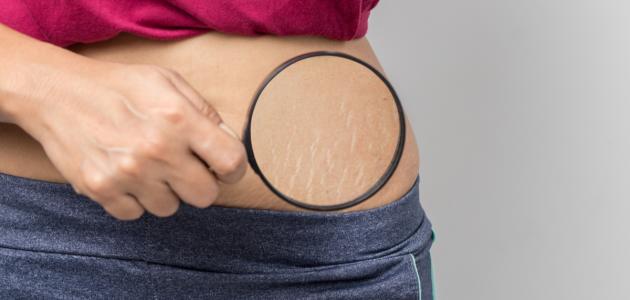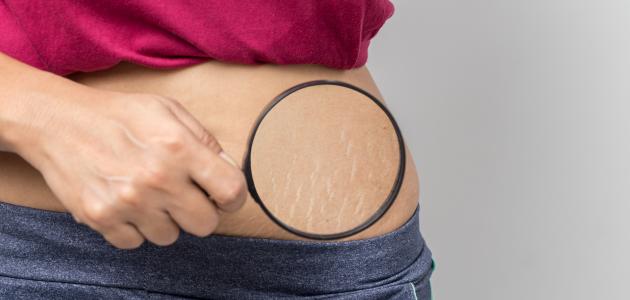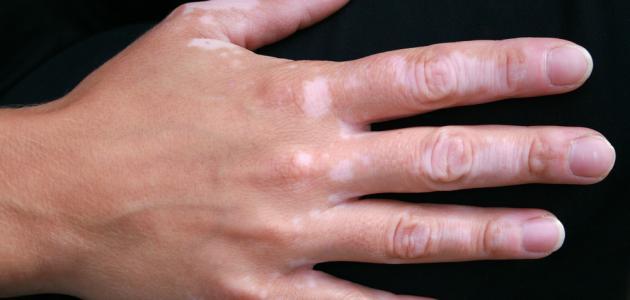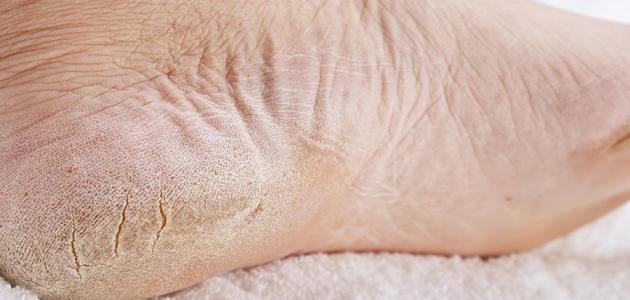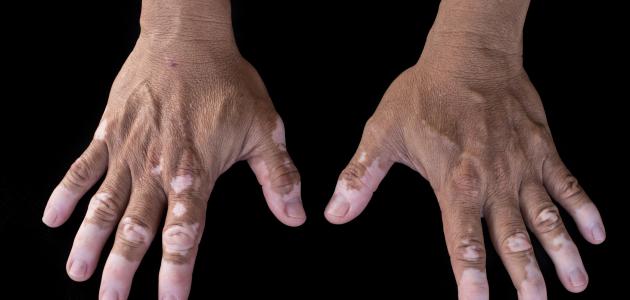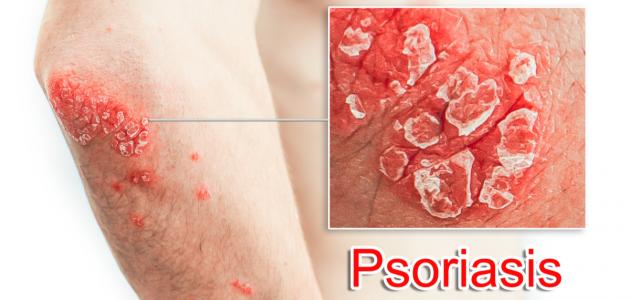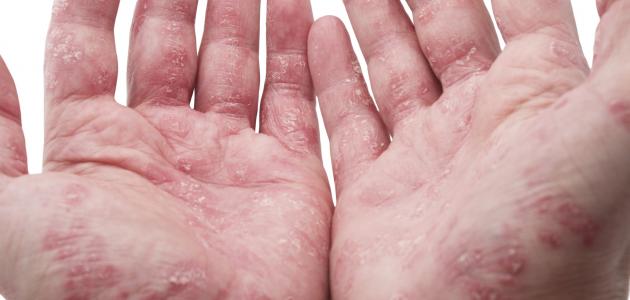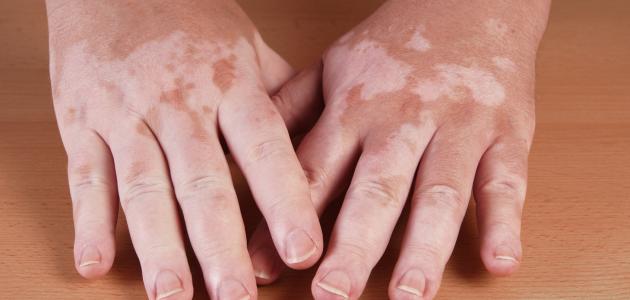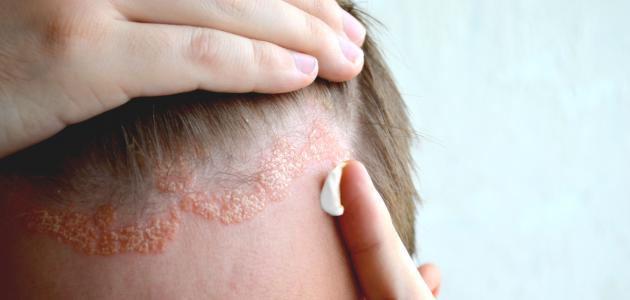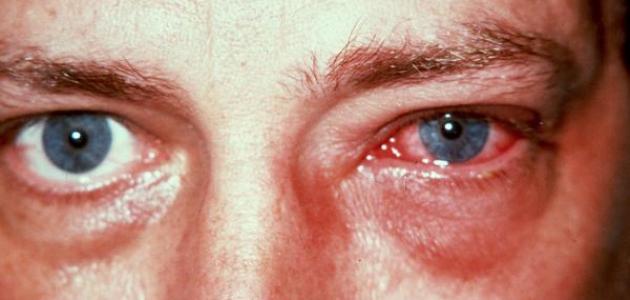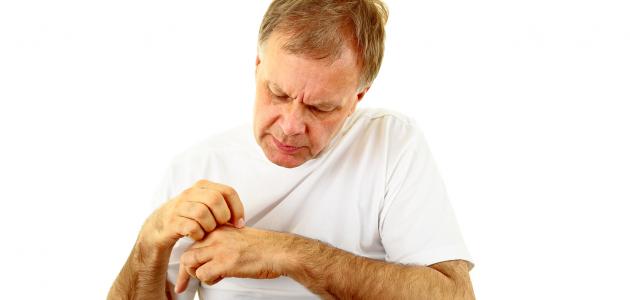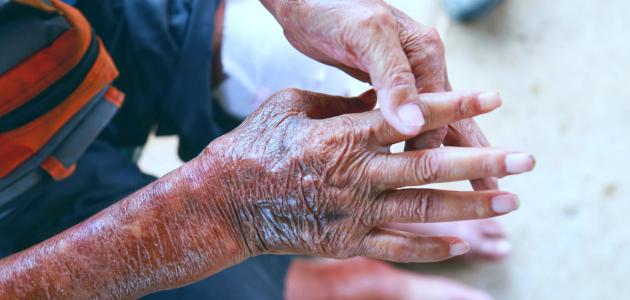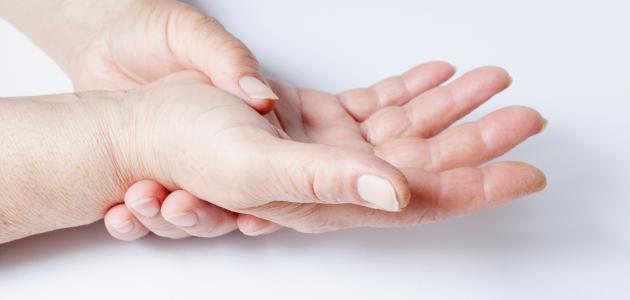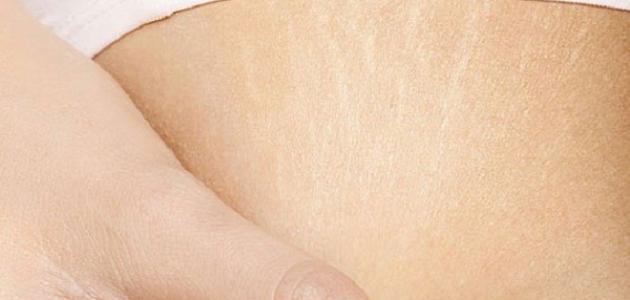Contents
Psoriasis overview
Psoriasis is defined as a skin disorder that leads to the appearance of red spots covered with white scales on the skin, so that they are thick, dry, and protruding from the surface of the skin, and may be accompanied by a feeling of itching, and in general the symptoms of psoriasis may differ according to the type and location that affects With it, as well as the body area affected by psoriasis, [1] [2]It is noteworthy that psoriasis usually appears in the early stage of puberty, due to the rapid multiplication and growth of skin cells that may reach ten times the normal rate, and it is worth noting that it may affect anywhere on the skin of the body, but most often it appears on the scalp, and the elbows , The knees, and the lower back, and it is indicated that it may affect some areas of the body but not all of most people, and the spots may reappear again during a person’s life after healing and recovery from them, and in this context it is indicated that psoriasis is not contagious; In the sense that it is not transmitted from one person to another, but sometimes it may appear in members of the same family due to genetic factors. [1]
To learn more about psoriasis, you can read the following article: ( What is psoriasis and what is its treatment ) .
In fact, there are many types of psoriasis, including Plaque Psoriasis, which is the most common type of psoriasis, and other types: Inverse psoriasis, Erythrodermic psoriasis, and Diameteral psoriasis (in English: Guttate, and Pustular Psoriasis, [3] and according to the National Psoriasis Foundation, psoriasis is classified as mild if it affects an area of less than 3% of the body, and if the affected area ranges With psoriasis between 3-10%, it is considered a moderate case, while the case is considered severe if the affected body area exceeds more than 10%, and according to the International Psoriasis Federation, 2-3% of the total world population are infected with psoriasis. [4]
To learn more about the types of psoriasis, you can read the following article: ( Types of Psoriasis ) .
Causes of psoriasis
As mentioned previously, psoriasis is not considered contagious. That is, it is not transmitted from one person to another by touching, swimming in the same pool, or practicing a marital relationship, and when talking about the mechanism of occurrence of psoriasis, scientists have indicated that immune and genetic factors have a role in its development. [5]
Immunomodulatory factors
The cause of psoriasis is not fully understood, but it may be associated with a disorder of the immune system , specifically in T cells and other types of white blood cells. Especially those known as neutrophils, and in this context it is indicated that T cells are important in combating foreign substances and organisms that enter the body. Like viruses or bacteriaBut, in cases of psoriasis, the T cells mistakenly attack healthy skin cells as if they are exercising their role in wound healing or infection control, and the increased activity of T cells results in certain immune responses. It stimulates the production of healthy skin cells, and more T cells and white blood cells. Specifically the neutrophils, which leads to their transfer to the skin, causing redness, and sometimes the appearance of pus , in addition to a feeling of warmth and heat in the areas affected by psoriasis; Due to the expansion of the blood vessels in them, [6]This process continues in the form of a cycle in which new cells move to the outer layer of the skin at a very rapid speed, lasting for days instead of weeks, and these cells accumulate in the form of a thick, scaly layer on the surface of the skin. The exact reason why T cells malfunction in this way, but it is believed that environmental and genetic factors play a role. [7]
Genetic factors
Genetic and hereditary factors play a role in the development of psoriasis, and it has been found that if one of the parents, grandparents, siblings, or sisters develop psoriasis, a person has an increased likelihood of developing psoriasis. [6] [2] In fact, the precise mechanism of the role of genetic factors in the development Psoriasis is not clear. Research has shown that certain genes play a role in the development of psoriasis, and the presence of certain groups of genes may make a person more susceptible to developing psoriasis, however, the presence of these genes does not necessarily mean that a person has psoriasis, [8] and scientists have been able Identifying about 25 different genes whose presence may be linked to an increased risk of developing psoriasis. [9]
Psoriasis triggers
In fact, there are many triggers that may increase the chance of developing psoriasis or worsen the severity of its symptoms for many people, and it is indicated that their presence does not necessarily mean the emergence of psoriasis, and the effect of these factors varies between people, meaning that the presence of one of the factors may cause The development of psoriasis in a particular person, while it does not cause its development in another person, and the following is a statement of the most prominent of these triggers. [9]
pharmaceutical
The use of certain types of drugs may contribute to stimulating the development of psoriasis in some cases as a side effect of their use, or it may lead to worsening psoriasis symptoms in some psoriasis patients, but it is worth caution not to stop taking any of these drugs without consulting the specialist doctor We mention from these medicines the following: [10]
- Propranolol: This drug belongs to the beta-blockers (β-blockers), and is used to treat high blood pressure, reduce the incidence of angina and heart attacks, and it may worsen psoriasis symptoms in some patients, and it may resort to Doctor to replace it with other drugs; As diuretics and calcium channel blockers .
- Lithium: It is used to treat mental disorders. Including the disorder bipolar , and may lead to increased symptoms of psoriasis worse in some people with them, the doctor may seek to replace it with other drugs; Such as selective serotonin reuptake inhibitors.
- Anti-malarial drugs: , which are also used to treat rheumatoid arthritis and lupus, and may sometimes contribute to the development of psoriasis. But this does not appear until two to three weeks after its use, and the drug Hydroxychloroquine is one of the malaria drugs that cause few side effects, and therefore it can be resorted to in such cases.
- Alkwynaedin: , as it helps to regulate the rhythm of heart , and may lead to increased symptoms of psoriasis worse in some people with them.
- Indomethacin: , it is a non-inflammatory nonsteroidal anti -atory drug, and it is used to treat arthritis, and it may worsen psoriasis symptoms in some people with it, and in general it is indicated that the correct and appropriate use of this drug It causes mild side effects, and indomethacin may be substituted for prescription. Such as infliximab, Etanercept, and adalimumab .
- IFN Alfacun 1: , and it is used to treat hepatitis C , "C" , but found that it may cause an increase of the severity of the symptoms of psoriasis.
Hormonal changes
It is believed that many hormonal disorders occur during certain life stages; Specifically during the period between 20-30 years and after 50 years of age, it may have a role in the development of psoriasis, and many hormones may affect the development of psoriasis or increase its severity; These include estrogen and progesterone , as well as the hormone prolactin , cortisol, adrenaline , thyroid hormones, leptin , ghrelin , and insulin, [11] The effect of hormones in women during pregnancy and menopause can be explained as follows: [12]
- Pregnancy period: Several studies have shown that the skin layers of people with psoriasis improve during pregnancy in many women. This causes an improvement in symptoms, and this has been attributed to high levels of the hormone estrogen during pregnancy, but the condition may worsen after childbirth, while many women who show an increase in the severity of psoriasis symptoms during pregnancy experience an improvement in symptoms after childbirth, and this may be repeated In subsequent pregnancies, it is believed that genetic factors play a role in women whose symptoms improve during pregnancy, and it should be noted that the psychological pressures that accompany the stage of pregnancy and postpartum may play a role in the development of psoriasis, but it should be noted that this information related to the relationship between psoriasis and pregnancy. These are the results of studies conducted on a small number of women, and more research is needed to support it.
- The period of menopause: Some studies have indicated that the decrease in estrogen levels associated with menopause in women may lead to the occurrence or increase of psoriasis, and it is worth noting that the psychological pressures that accompany menopause may play a role in the development of psoriasis.
Stress and psychological stress
Stress and psychological distress are factors that may lead to the development of psoriasis. These factors stimulate the occurrence of inflammation in the body, which causes the destruction of body tissues by the inflammatory compounds and substances that are released, and it is indicated that people with psoriasis are prone to suffering from psychological pressures as well, and in general women are more susceptible to psoriasis attacks as a result of stress. [11]
Infection
The imbalance that affects the immune system may also affect psoriasis, for example, streptococcus infection that causes sore throats may be associated with certain types of psoriasis; Specifically, guttate psoriasis, [9] and there are many other forms of infection that may trigger psoriasis. Such as bronchitis, colds, influenza, or tonsillitis, and it is worth noting that psoriasis is at its worst in the early stages of HIV infection , but it improves after starting the appropriate treatments. [13]
Skin injury
Psoriasis is more likely to develop in areas of the skin that have undergone a previous injury known as the Koebner phenomenon, which is a phenomenon represented by the formation of a scar on the skin at the site of exposure to a stimulus, and this trigger may be itching only, and other stimuli include: receiving vaccinations, exposure For sunburns, scratches, wounds, bruises, or burns, and tattoos , the possibility of treating this phenomenon is indicated after it is discovered early, and the fact that psoriasis may be the cause of this phenomenon, and this phenomenon can stimulate the emergence of psoriasis , [9] [14] [15] In this context, it is indicated that the emergence of psoriasis in this case may be within three days to two years of exposure to the skin injury in many cases. [16]
Cold weather
The likelihood of triggering psoriasis increases during the winter season; This is due to several factors; These include exposure to cold air, dry weather, and light sunlight. [11]
Smoking
According to the opinions of some experts, the possibility of activating genes associated with psoriasis increases in smokers and those who have a genetic tendency to have this condition, as the nicotine in cigarettes affects the person's immune system, and many substances in cigarettes may cause oxidative damage to some cells. It should be noted that many smokers may suffer from significant psychological pressure, and this in itself is a trigger for psoriasis. [17]
Alcohol
Drinking alcohol increases the severity of psoriasis symptoms, and may prevent it from controlling its attacks, and alcohol may affect the effectiveness of some medicines used to treat certain types of psoriasis. Such as the drug methotrexate , and this is what prevents achieving the desired benefit from the use of the drug and thus not controlling the symptoms. [18]
Diet
Many types of foods affect psoriasis symptoms, and according to studies based on the National Psoriasis Foundation, some psoriasis patients avoiding certain foods contributed to improving their symptoms, including foods containing gluten , and some vegetables. ; Tomatoes, potatoes , and eggplant. [18]
Obesity
According to the study conducted by Herlev and Gentofte Hospital in 2016, obesity promotes the progression of psoriasis and increases the severity of its symptoms, due to the effect of obesity on pro-inflammatory pathways in the body, It also reduces the response to existing treatments. [19]
References
- ^ A b "Psoriasis" , the www.webmd.com , Retrieved 29-11-2019. Edited.
- ^ A b "Psoriasis" , Www.aad.org , Retrieved 12-12-2019. Edited.
- ↑ Debra Sullivan (5-7-2019), "What to know about psoriasis" , www.medicalnewstoday.com , Retrieved November 29, 2019 . Edited.
- ↑ "Statistics" , www.psoriasis.org , Retrieved 29-11-2019. Edited.
- ↑ "psoriasis" , www.aad.org , Retrieved 12-12-2019. Edited.
- ^ A b "Psoriasis" , Www.mayoclinic.org , Retrieved 29-11-2019. Edited.
- ↑ "PSORIASIS" , www.belfastskinclinic.com , Retrieved 12-12-2019. Edited.
- ↑ "Causes -Psoriasis" , www.nhs.uk , 9-5-2018, Retrieved 29-11-2019. Edited.
- ^ A b t w the National Psoriasis Foundation, " the AND CAUSES TRIGGERS" , Www.psoriasis.org , Retrieved 29-11-2019. Edited.
- ↑ Regina Boyle Wheeler (26-8-2009), "Medications That Can Trigger Psoriasis" , www.everydayhealth.com , Retrieved 11-29-2019. Edited.
- ^ A b v the Charles , Patrick Davis , (2-9-2017), "Psoriasis: . Top 10 Causes, Treatments And Trigger" , Www.onhealth.com , Retrieved 29-11-2019. Edited.
- ↑ Marie Suszynski (9-8-2017), “How Hormones Affect Psoriasis” , www.everydayhealth.com , Retrieved 11-29-2019. Edited.
- ↑ "12 Psoriasis Causes and Risk Factors" , /www.webmd.com , Retrieved 29-11-2019. Edited.
- ↑ Stephanie S. Gardner, (26-10-2019), "Top Psoriasis Triggers" , www.webmd.com , Retrieved 11-29-2019. Edited.
- ↑ "Causes of Koebner's Phenomenon" , www.verywellhealth.com , Retrieved November 29 , 2019 . Edited.
- ↑ Lana Barhum, Casey Gallagher (11-10-2019), "Can You Get a Tattoo If You Have Psoriasis?" , Www.verywellhealth.com , Retrieved November 29 , 2019 . Edited.
- ↑ "Is Your Smoking Making Your Psoriasis Worse?" , www.everydayhealth.com , Retrieved 12-12-2019. Edited.
- ^ A b Debra Sullivan, Claire , Sissons (2-10-2018), "11 Triggers For Psoriasis Flares" , www.medicalnewstoday.com The , Retrieved 29-11-2019. Edited.
- ↑ Peter Jensen (4-2017), "Psoriasis and Obesity" , www.karger.com , Retrieved 1-12-2019 . Edited.
